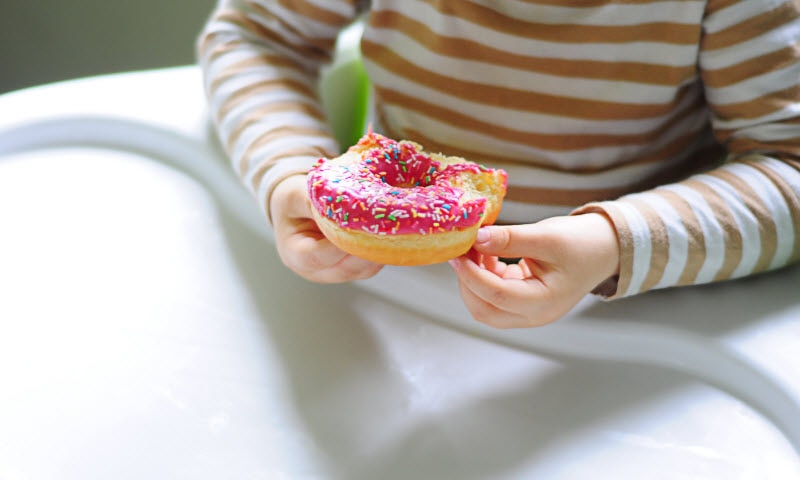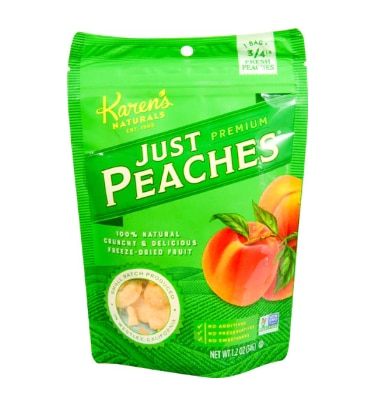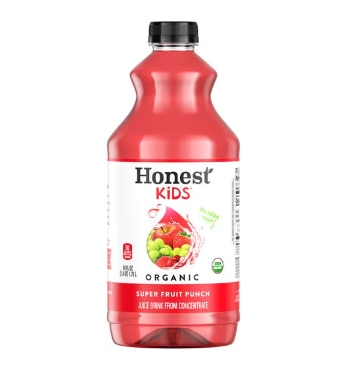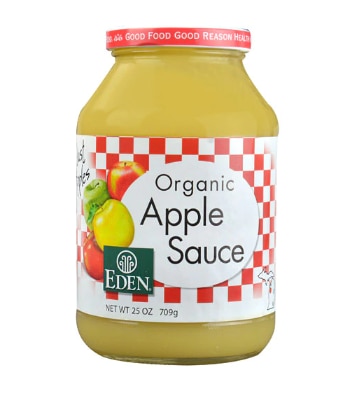Ultraprocessed foods (UPF) are highly palatable foods that are cheap, widely available and insidiously detrimental to health. While many studies have shown the negative health effects of ultraprocessed foods in adults, only recently have studies started to track the negative impacts on children and adolescents.
How bad are ultraprocessed foods for kids?
A study published in May this year found that high UPF consumption in kids ages 3 to 6 was linked to greater risk for adiposity (excess body fat) and other cardiometabolic risk factors—like heart attack, stroke and diabetes—in adulthood. The study also showed children who consumed the most ultraprocessed foods were more likely to demonstrate a higher body mass index, systolic blood pressure and waist-to-height ratio.
Of course, there are cultural and hereditary factors involved as well: Mothers whose children ranked highest in UPF consumption were younger, had a higher BMI, were more prone to be living with overweight or obesity, were less likely to have exclusively breastfed their children and had lower educational achievement and employment rates.
Kids eating more UPFs is not going away. In fact, one study showed that the trend, which cuts across socioeconomic lines in the United States, has increased among youths. UPFs consist of the majority of kids caloric intake. In 2018, for example, 67 percent of the calories in kids’ and teens’ diets were from UPFs. This trend is similar to kids in Britain, research suggests.
Good choices start early
The influence of UPF can be felt even in utero, by babies influenced by their mother’s food choices. This can set a baby’s food preferences and determine what happens in the future vis a vis food choices. How children eat for the rest of their lives is greatly impacted by their early nutrition. In adolescence, those behaviors start to become ingrained. The research shows that ultraprocessed foods make up the majority of adolescents’ diets and consumption is at a much higher level than is ideal.
What exactly are ultraprocessed foods?
The first step in the battle to curb UPF consumption is to be able to recognize them. Become one of the most people you see at the supermarket peering at product labels. Red flags that the product in your hands is a UPF are chemical names, unpronounceable words and anything you would be unlikely to find in a kitchen cabinet. Ingredients such as high-fructose corn syrup, hydrogenated oils, protein isolates and chemical additives like colors, artificial flavors, sweeteners, emulsifiers and preservatives are giveaways. They are used to make food more appealing because they help prevent mold, stop food from separating and make food products tastier.
The type of food and drinks classified as UPFs are sodas, chips, ready meals such as Lunchables, packaged soups, supermarket bread, cereal, chicken nuggets, cookies and ice cream. Ultraprocessed foods are carefully formulated to be so palatable and satisfying that they’re addictive. Tera Fazzino, an assistant professor of psychology at the University of Kansas, created a term used to describe this phenomenon—hyperpalatability. The problem with such craving-inducing food is that even though it might be delicious, it has little to do with real, whole food.
Protecting kids from the health risks of ultraprocessed foods
Countries like Brazil, Mexico, Canada and Israel have explicitly recommended avoiding or limiting UPFs. The U.S. dietary guidelines are not as emphatic, but an advisory committee is currently looking into the evidence on how UPFs may affect weight gain, which could influence the 2025 guidelines. In the meantime, here are a few helpful strategies for consuming UPFs with more moderation.
Opt for the lesser of evils
Sometimes, air fried chicken nuggets are the easiest and least expensive way to get a meal on the table that your kid will actually eat. Even the health experts may do it from time to time. But one good thing to realize is that not all UPF are created equal. It behooves you to take a closer look at the ingredients and then try to make an informed decision.
Although ingredients can be difficult to parse, researchers at Northeastern University have created a nifty online database called TrueFood that lets you browse for food items to determine how processed they are. The site even offers alternative recommendations It scores foods on a scale from 0 (unprocessed or minimally processed) to 100 (highly ultra-processed).
For example, Ian’s Frozen Chicken Nuggets have a score of 13 and has a very simple, recognizable ingredient list. Tyson Fun Nuggets, however, have a score of 94 and contains unspecified flavorings.
Stick to the grocery store perimeter
In order to edge out UPFs from your kid’s diet, fill up on more fresh fruits, vegetables, whole grains legumes, nuts and seeds. If the cost is prohibitive, check out Latin and Asian markets which often stock lower priced produce. Stocking up on essentials like rice, lentils, nuts and seeds at Vitacost also can help with affordability.
Meal prep
The big selling point for UPF are how convenient they are. Cook at home as much as you can, using minimally processed foods. Try some meal prep hacks, cooking up multiuse staples a few times a week, that can be incorporated into all kinds of yummy combinations.
Aim for 80/20
The impulse to be perfect is the enemy of the impulse to be good. The idea with UPFs is not to eliminate them totally, but to have kids consume them in moderation and in proportion. If your kids eat a diet of whole foods 80 percent of the time, and the other 20 percent of the time they indulge in UPFs, no big whoop. But if the ratio goes the other way, with only a fifth of your kids diet real wholesome foods, then you do need to be concerned.




